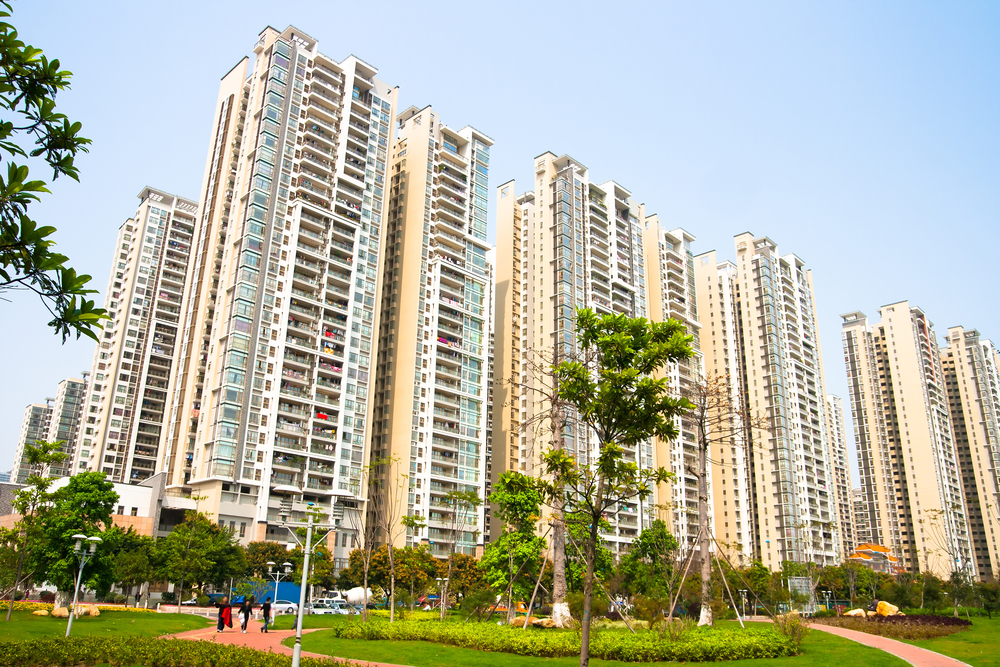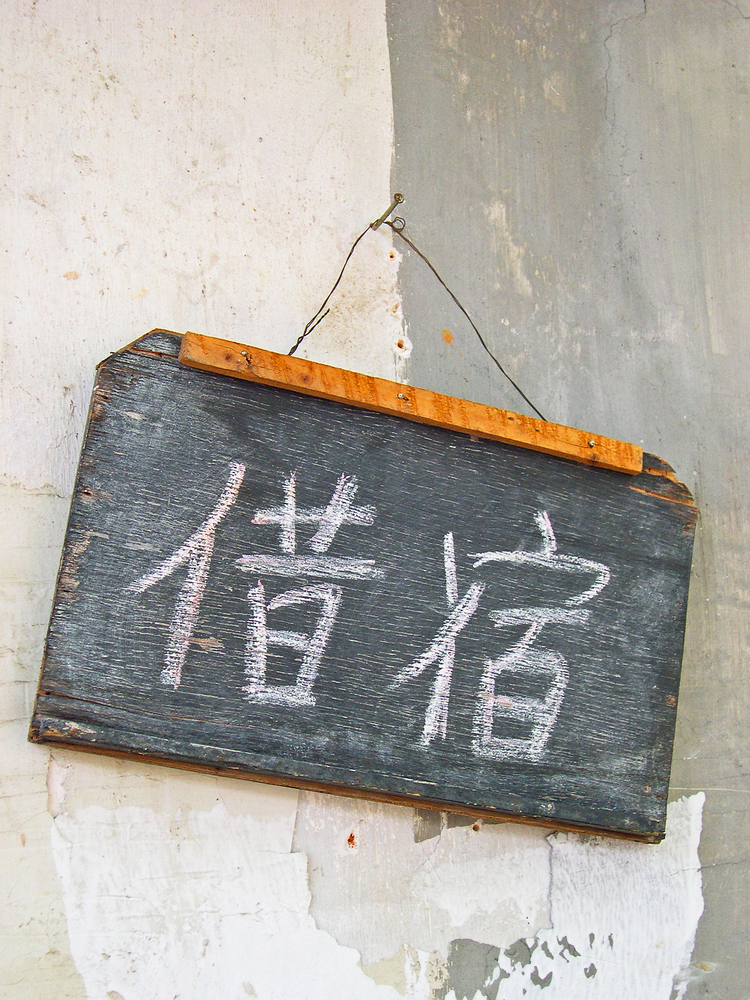Real Estate: Country Rental Fact Sheet
Welcome to China!
There are large expat communities throughout China’s largest metropolises. Expats are drawn to the country for its seemingly endless economic opportunities, and its cities are filled with international corporations that draw workers from around the globe. There are many options for housing ranging from modern apartment complexes to traditional houses called siheyuan. Rental rates vary depending mostly on the size and location. Rent is highest in Beijing, Shenzhen, and Shanghai, while more affordable in Guangzhou. China’s most popular urban areas are very congested and navigating long distances daily can be a serious undertaking. It is recommended to find housing close to your place of work or school. It is rare for expats to own cars in China, with most relying on public transportation as an efficient way to get around. Although English is widely spoken throughout Chinese business centers, prospective renters beginning their search will benefit from using a translator or multilingual real estate agent as well as extensive English-language property listings and classifieds.
Types of Rental Properties
- Apartments are the main accommodation available in China. They typically include a combined kitchen and living area, along with bedrooms and a small storage area. Newer developments are more likely to include common areas such as a gym or laundry facility.
- Serviced apartments are popular among expats on short-term assignments. These units come fully furnished and equipped with basic household goods such as linens and cookware. Amenities vary, although usually include housekeeping services. The process for securing a serviced apartment is typically more like checking into a hotel then signing a rental agreement.
- Siheyuan are low-slung traditional Chinese houses. Rows of siheyuan combine to form long, narrow streets known as hutongs. Hutongs are found primarily in northern China and are a tourist destination in Beijing. Fortunate expats may be able to rent a siheyuan that has been refinished to meet modern standards.
Expat Neighborhoods
Expect neighborhoods in China’s largest cities to be crowded and have either an old, established feel or a more modern appearance. Some areas offer more green spaces, which add a natural appeal to the dense, urban environment. Typically, the most important element of a neighborhood is its proximity to your place of work or schooling. Commute times can be extensive, so it is best to live near the places you’ll have to be every day.
How to Find a Rental
Searching for an apartment in China on your own can be difficult. There are numerous real estate companies with English speaking agents who can help you locate housing, avoid scammers, and craft solid rental agreements. Their agent fees are affordable, and their services essential. It is recommended that you pick a district where you want to live, and then find an agency that specializes in properties in that district. Rental listings are included in classified ads posted in local newspaper and on websites such as 58.com (https://bj.58.com), Craigslist (https://beijing.craigslist.org), and Baixing.com (www.baixing.com). Some of the most popular online portals for rental properties include:
|
|
Rental Rates and Fees
Below is a table of average monthly rental rates for apartments by size and location.
| In City Center | Average Monthly Rate | Range | Outside City Center | Average Monthly Rate | Range |
| 1-bedroom | ¥7,121 | ¥5,000–10,000 | 1-bedroom | ¥4,007 | ¥3,000–6,000 |
| 3-bedroom | ¥15,563 | ¥10,000–30,000 | 3-bedroom | ¥9,145 | ¥6,500–15,000 |
- Real estate agencies typically require the equivalent of half one month’s rent for their services in securing a rental. Agents often try to upsell to foreigners, thinking they can afford it. If your agent shows you something outside your budget, be inflexible and firmly refuse.
- Renters often pay a one-time building maintenance fee at signing.
- When you find an apartment or other dwelling you are interested in renting, you’ll need to pay a blocking fee to hold the space while you decide. It is generally 10–15 percent of a month’s rent, and this fee is not refunded.
- Renters should clarify if the rent is inclusive or exclusive of utility charges, and this should be stated in rental ads as well as the lease agreement.
- If dealing directly with a landlord, be sure to ask for a property certificate and identification card to verify they truly are the property owner. Do not sign a lease without verifying this information.
Lease Terms
Restrictions
There are no legal restrictions on who can rent apartments in China. However, there are also no laws against rental discrimination, meaning landlords are free to refuse renting to anybody for any reason. Tenants will need to provide their Chinese visa when filling out the rental contract.
Duration
The most common lease term in a Chinese tenancy agreement is one year. Shorter terms are available, although these tend to be expensive. Leases for longer than a year can often be negotiated for a small discount.
Deposits
A security deposit equal to one month’s rent is typically required in China as well as two to three months’ rent paid in advance. Up to three months’ rent may be required as a security deposit, and up to three months’ rent may be requested in advance. Some landlords may ask tenants to get insurance that covers a year’s rent or require a guarantor to co-sign on the lease agreement so that if the tenant proves unable to pay rent, the landlord will still receive payment.
Pets
Renters should check with landlords about the possibility of keeping a pet. They are generally not allowed in apartments or need to measure less than 35 centimeters (14 inches) tall.
Legal Issues
- Timely payment of rent is essential. If a tenant is late paying rent, Chinese landlords can charge 0.5 percent interest per day. If rent is unpaid for 20 days, the landlord can terminate the contract.
- If dealing directly with a landlord, be sure to ask for a property certificate and identification card to verify they truly are the property owner and that the property is registered.
- Tenants need to register their new address at the local public service bureau (PSB) or police station within 72 hours of moving in. Landlords also must have registered their property with the government. If you as the renter register yourself to a property that the landlord has not properly registered, you both may be in legal trouble.
Amenities
Furnished vs. Unfurnished
In China, most rentals are fully furnished, which means they come with all major appliance as well as basic furniture. Some landlords may be willing to remove the furniture and charge less. Most rentals do not include an oven, as this is not a preferred cooking method in Asian cuisine. However, apartments catering to Western expats and serviced units will likely come with a full range of kitchen appliances.
Parking
Generally, expats do not have cars in China as traffic is congested and public transportation is extensive and affordable.
Utilities
Most rentals do not include utility service. Electricity, gas, water, telephone landline, internet and bundled services must be secured independently by the renter. It is likely that sewage, and waste and recycling are covered by your landlord.
Telephone Landline
Only a property owner can get a telephone landline installed, so landlords need to arrange this for a tenant if there is not an existing connection. China Telecom (www.chinatelecom-h.com) and Overseas China Network or OCN (www.ocn,net.cn) are the country’s main providers. Many renters choose to skip landline installation and use their mobile phones for all communication.
Internet and Bundled Services
The country’s main internet service providers are China Unicom (www.mychinaunicom.com), China Telecom (www.189.cn), and China Mobile (www.10086.cn). New accounts are easily arranged in person at the local branch office and simply require a passport. These companies also provide mobile phone service, with discounted rates available for bundling services.
Electricity
State Grid Corporation of China or SGCC (www.sgcc.com.cn) and China Southern Power Grid or CSG (www.csg.cn) are the country’s primary electricity suppliers. Renters will need to provide valid identification and a copy of their rental agreement to transfer the account to their name and apply for an electricity card.
In China, electricity is paid for in advance by adding funds to what is called an IC card and then inserting that card into the meter found in your rental. Money can be transferred to an IC card using machines at various banks throughout China. The light on your meter will begin to flash when funds are low. If funds run out, the electricity will shut off until more money is added to the system.
The standard electrical voltage is 220 volts AC, 50 hertz, using the type A plug, type C Europlug, and type I plug. European devices will work in China, although some may require plug adapters. American devices, which are designed for 110- and 120-volt electricity, will require voltage converters or transformers as well as plug adapters.
Water and Sewage
Tap water is not suitable for drinking in China. Rentals commonly include water dispensers and bottle delivery for these can be arranged. A landlord, building manager, or local agent that secured your rental can provide contact information for the company that oversees your local water supply. An account should already be open at your rental, and transferring names is an easy process. A monthly bill will be delivered to your door.
Gas
In China, water is heated using piped natural gas (PNG), and many stoves use gas rather than electricity. Each household has a yearly limit on how much gas they can use. Once they exceed that limit, the gas company will begin to charge three times the normal rate. Providers vary regionally with Beijing Gas Group being the country’s largest supplier.
Like electricity, gas is paid for in advance by adding funds to what is called an IC card and then inserting that card into the gas meter found in your rental. Money can be transferred to an IC card using machines at various banks throughout China.
Waste and Recycling
Residents must separate their household waste into four categories: recyclable waste, hazardous waste, residual waste, and kitchen waste. Regional waste management companies supply bins to apartment complexes. Tenants should clarify with landlords when trash is collected and where the area for trash disposal and recycling is located.
Making Payments
Most utilities can be paid in person at convenience stores and banks as well as using third party payment websites such as Alipay (www.alipay.com) or 99bill (www.99bill.com).
FAQs
Can I negotiate my lease?
Yes, particularly if the lease is for longer than a year. Bargaining is an accepted practice in China and those willing to try negotiating may save from 1–10 percent on overall rent. Renters also can negotiate on the furnished status of the rental, asking for the furnishings to be removed for a discount.
Should I have renter’s insurance?
Renter’s insurance is not required, but it is advisable. Depending on the policy, renter’s insurance can cover everything from lost or stolen personal items to property damage due to kitchen fires, plumbing issues, inclement weather, and more. Rates are calculated based on the size of the rental property and the value of furnishings and personal effects. Most insurance companies, in China and worldwide, offer some form of renter’s insurance.
Article written for World Trade Press by Taylor Holloran, Felicia Topp, and Brielle Burt.
Copyright © 1993—2025 World Trade Press. All rights reserved.

 China
China 

